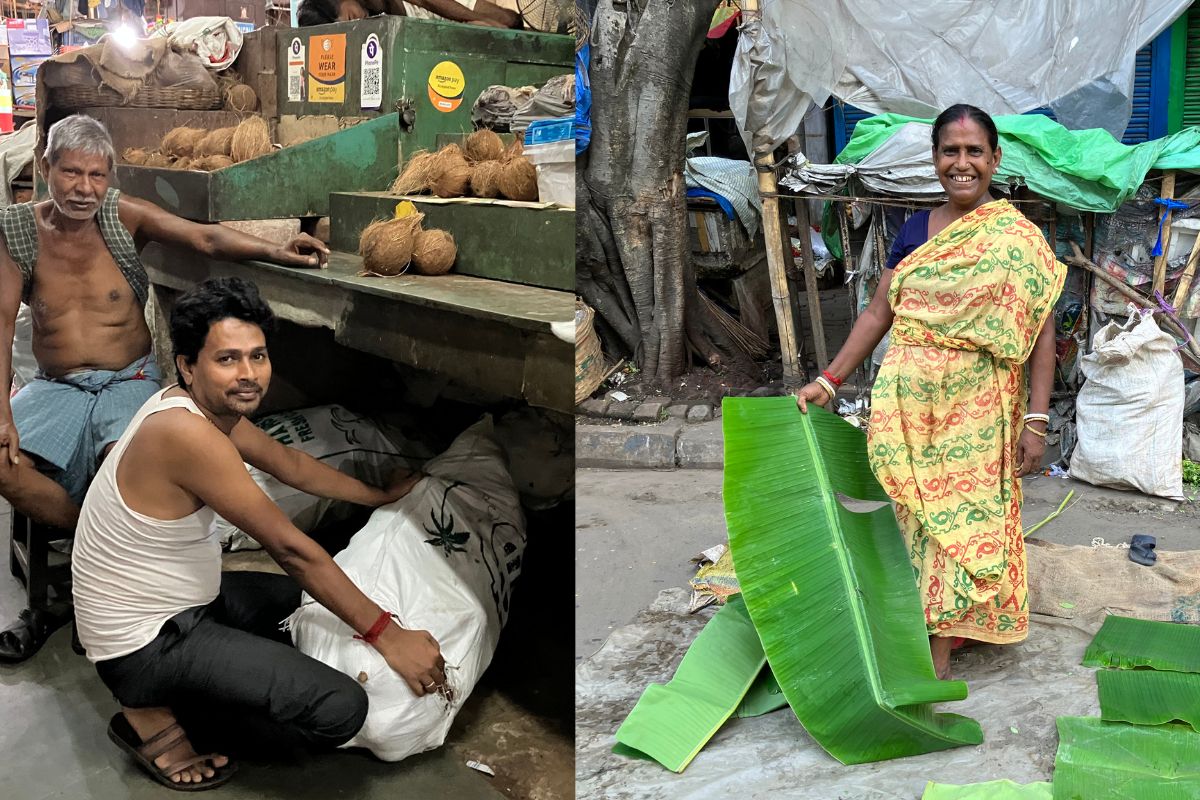Trinamul lodges plaint with EC against CBI
The Trinamul Congress has lodged a complaint against the CBI with the Election Commission of India (ECI).
Hundreds of Kolkatans, who had migrated to the city for livelihood, rush to their respective villagers to cast their votes where they have their names still registered on the voter list.

Soumendra Mondal (L) and Malati Mondal (R)
The weekend starting Saturday July 8 will see hundreds of migrant laborers leave the city of Kolkata to cast their votes in the rural polls. They include riskhaw pullers, domestic helpers, construction workers, vegetable vendors, guards at residential and other buildings, electricians, plumbers and a host of others from the lower-income-group workforce who migrated to the city for livelihoods but whose names are still registered on the voting lists at their respective villages. July 8 is the date of the three-tier Panchayat elections when rural voters will exercise their franchise to elect representatives to the three rural administrations, the Gram Panchayats, the Panchayat Committees and the Zilla Parishads.
“I never miss the chance to cast my vote,” says Malati Mandal, a 55-year-old fruits and vegetables seller at one of Kolkata’s biggest retail markets, Lake Market. Spreading banana leaves – as lining before placing her fare on it – on the pavement where she sells seasonal greens, fruits and vegetables, she says that with only three days to go she has “totally decided” whom she will vote for and says “My vote will go to the person who deserves it most.”
One of the other vegetable vendors, an old man with a toothless grin, cuts in jovially and chuckles, “She guards that secret close to her heart, like a priceless treasure.” Others laugh but they are all aware that one doesn’t reveal who one votes for.
Advertisement
“Kone dikey hawa boichey” (which way the wind is blowing) is something we will only come to know after the results are declared,” says Soumendra Mondal, a 44-year-old stall owner, whose father had started the business decades ago but has now passed it on to his middle son. “I have two other brothers, an elder one and a younger one but they are not interested in doing this business (selling and supplying coconuts to South India restaurants for making chutney).” Mondal says other than the three young children (the three sons of the three brothers) who are too young to vote, everyone in the family makes it a point to queue up in front of the designated booth in their village near Diamond Harbor to exercise their right to decide who they want as their administrator.
“For us villagers, voting (elections) is a religion,” laughs Nemai Mondal, 66, a farmer’s son who shifted to Kolkata when he was just a young boy. “I have witnessed the Congress regime, the Left regime and now the Trinamool regime,” he says. “During the Congress regime the police were very strict and I and other vendors used to be chased away because back then it was illegal to occupy this space. I was used to running away from angry parents but in the villages it was clay roads so it was soft earth and easy to manage. Here I fell down many times while running from the cops but because it was asphalt I cut myself badly many times.” Cherishing his own story about political regimes and elections, Mondal continues, “With the Left regime things changed and they made provisions for the poor people to eke out livings easily by granting us permission to do business here. And Didi (West Bengal chief minister Mamata Banerjee) is continuing the tradition of letting us be.” Mondal says that he will leave for his village in South 24 Paragana District’s Joynagar early in the morning on Saturday. “I know my regular customers will be inconvenienced for the day and I’ll be back as soon as possible but I will not give up a chance to vote.”
It is the same with Srimanta Mandal, 49-year-old plumber from Bankura District. “I will make some losses in terms of business,” he says, “and I’m turning down a lot of offers of work but this is important. It is my right and I will exercise it.”
The same with Kamini Halder, a 50-year-old domestic helper, who has taken leave of four days to go to her village in the Sunderbans.
It’s as Supriyo Mete, 27, a seller of potted flowers and plants in Lake Market says, “Whatever our professions or wherever our villages, you can be sure that most of us will make that trip to our home to cast our votes, especially because it is the rural elections.”
Advertisement